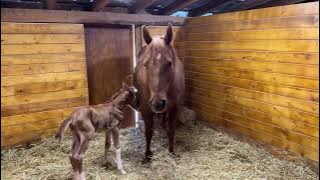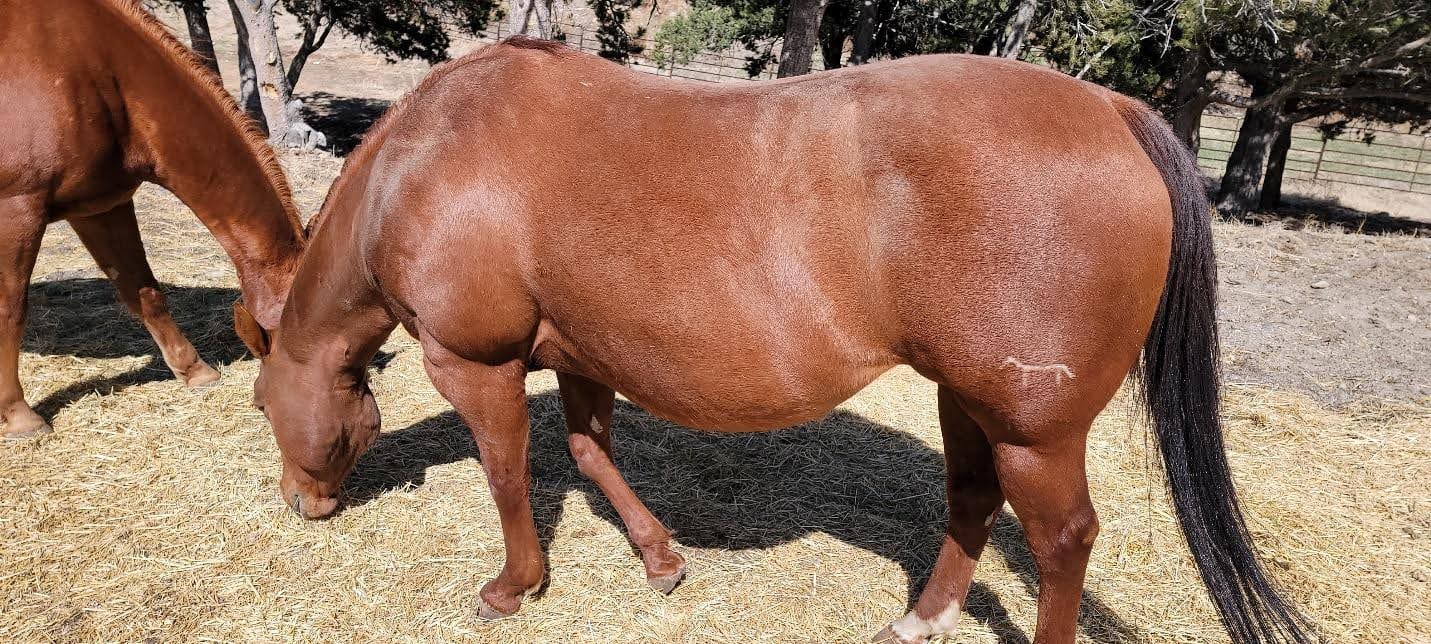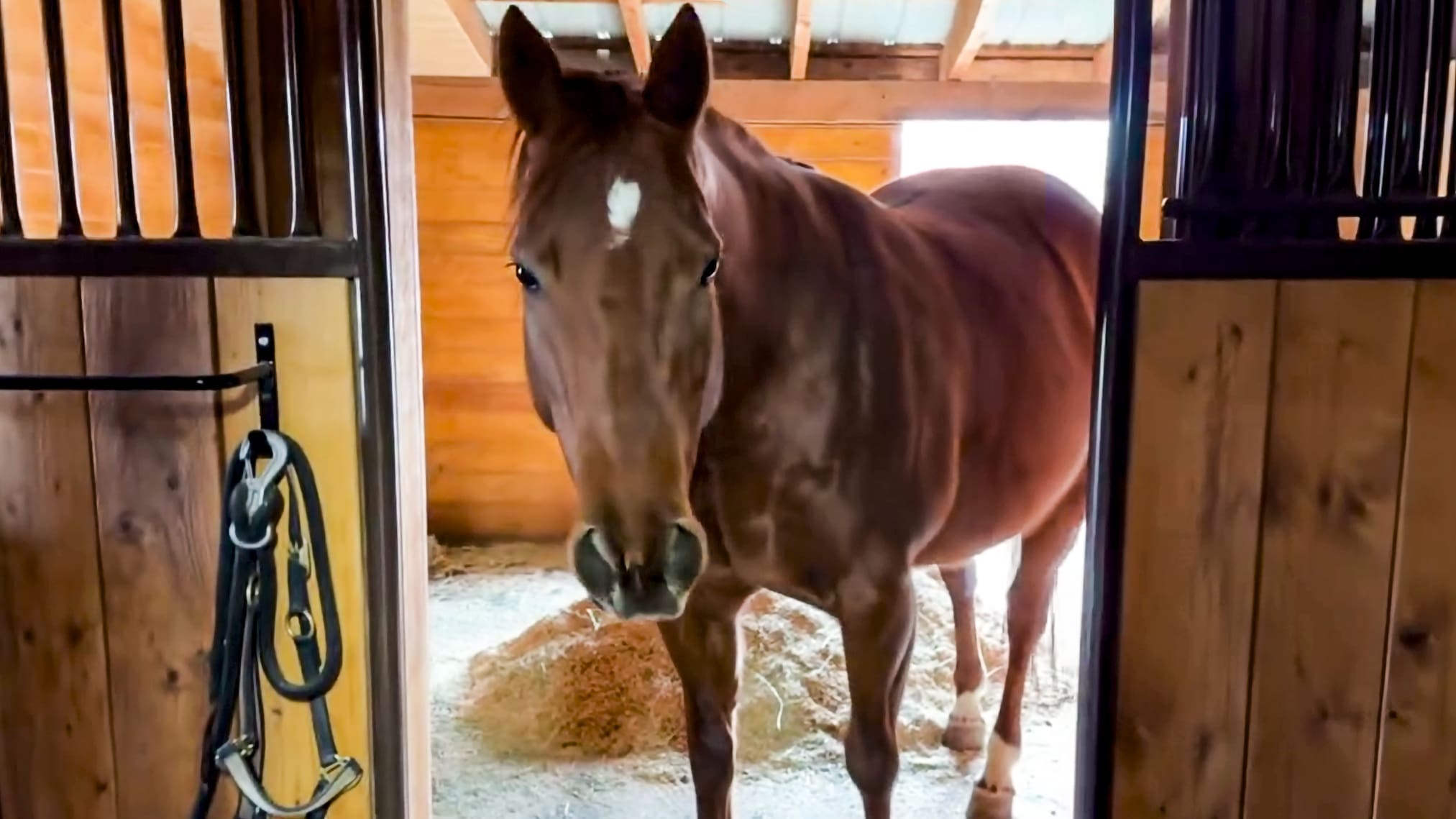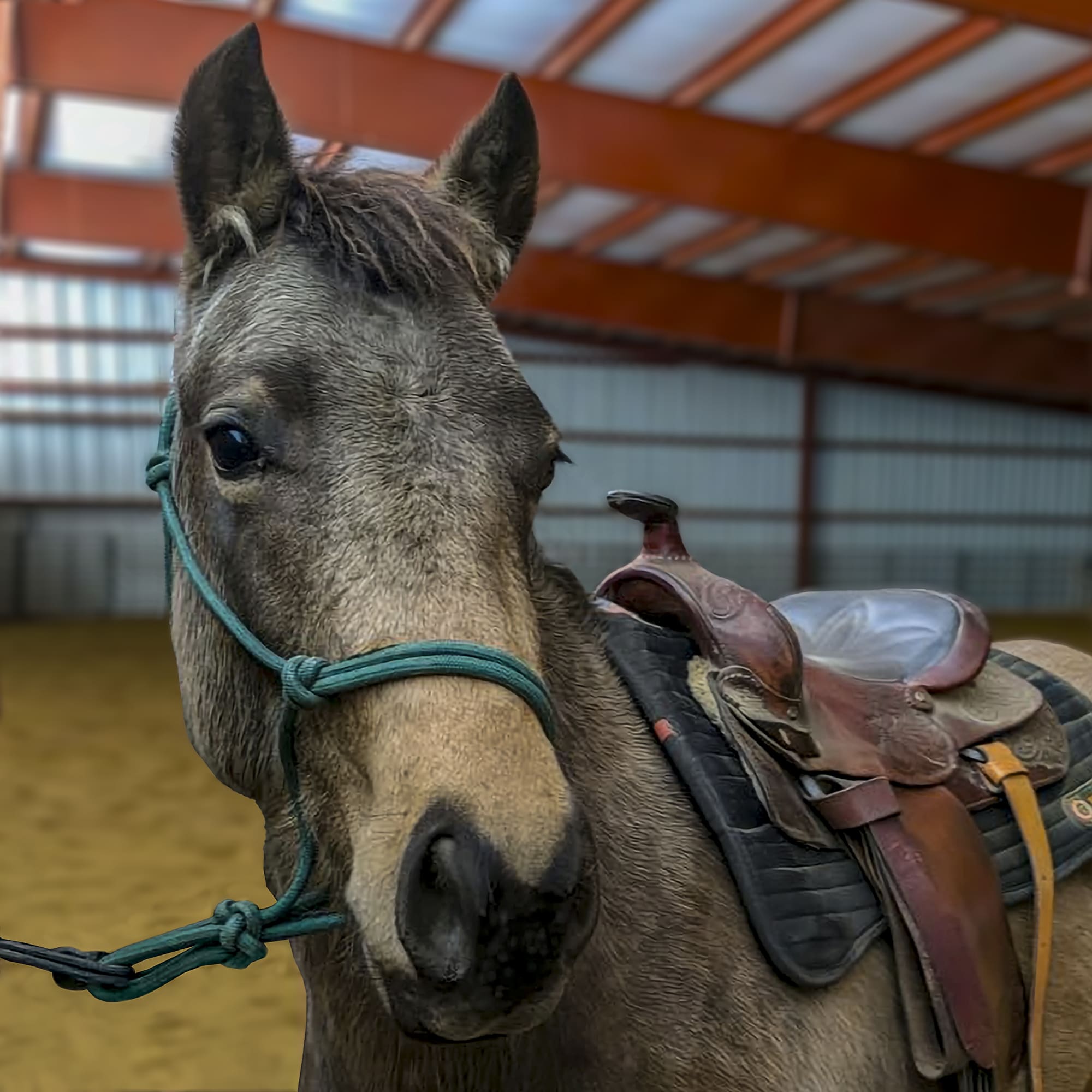These days, seems like I am seeing more and more rescue horses in my clinics and on the TV show. I guess it is a sign of our times and a trend that will only be increasing in the coming years. We’ve also had quite a few OTTBs (horse slang for Off The Track Thoroughbred) apply to be on the TV show and this week’s show features one such horse and rider. Be sure to watch “Back Stretch to Backyard, Episode 208
Andrea bought her TB gelding after he had been turned out to pasture for a couple years following his 8- year stint on the track. She was hoping to make a family horse out of him, for her kids and husband to accompany her on occasional rides. But from what I could see, he was a long way from that. He wouldn’t stand still at all and would start kicking randomly when you tried to make him—typical of a race horse. They are prone to having tempers and standing still is just not something that is required of race horses very often because they do best when they are moving. Often, race horses are saddled, mounted and dismounted while in motion. So that was one problem that needed addressing before he qualified as a “husband horse.”
When being ridden, Andrea’s horse would keep his head very high and launch impulsively into a trot whenever he wanted and in her effort to make him walk, she ended up programming the horse to “jig” (a bouncy, prancing trot that is quite uncomfortable to ride). Many people have this problem with OTTBs—as do many owners of pleasure horses as well. It’s a question that comes up a lot, “How do I stop my horse from jigging?”
While any horse can be inadvertently taught to jig by their riders, race horses are particularly prone to this problem and as with many “horse problems”, the issue is actually the rider. On the track, horses are galloped on very heavy contact and when you want them to stop, you loosen the reins. So, they have learned that loose reins mean stop and tight reins mean go. Believe it or not, most horses have inadvertently learned this, although to a lesser degree, because when you hold the reins tight, horses tend to be poised for action and when you are not going to ask anything of them, you’ll usually loosen the reins and sit very casually.
The problem that Andrea was having with her OTTB was that she was so sure that he was going to take off at any moment, that she held the reins tight and was perched forward, ready for action. To any horse, this can become a cue for them to get jazzed up and jiggy. This is almost always the cause of jigging and the solution is to stop the horse abruptly when he trots, but then drop the reins and ride on a loose rein. Pick them up again for correction if he breaks, but don’t hang onto the reins or he’ll be poised for action and begin jigging. For race horses, this is because how they are ridding on the track, but almost any horse, when faced with unyielding and meaningless pressure on the mouth, will become antsy and even begin to “run through the bridle” (the more you pull, the faster he goes).
Many times it is hard to know which came first, the chicken or the egg. Is the horse jigging because the reins are too tight or are the reins too tight because the horse is jigging? It really doesn’t matter—horses and riders develop this kind of co-dependency all the time. I see it at every clinic I do; sometimes with the ground work and sometimes in the mounted work. If you micro-manage your horse too much he becomes dependent on you to constantly tell him to slow down, speed up, or whatever, instead of trusting him to do his job correctly. If you try to prevent him from making mistakes (like breaking gait), he will never learn from making a mistake and then getting corrected for it. The same could be said for children—you’ve got to let them make decisions, right or wrong, and learn what the consequences of their actions are.
In this episode with Andrea, she did a great job of breaking the co-dependent cycle and with the exercises I showed her, the horse make tremendous progress in just one day. Do you have a tendency toward co-dependency with your horse? Do you ever get the feeling that the horse is cueing you instead of the other way around? Or that he is controlling your actions? I find that most people don’t recognize the co-dependency, even when it’s there.
And what is it about OTTBs that people like so much anyway? Is it that they are cheap and readily available if you live near a race track? Or maybe that the need is so great and people want to do the right thing and give a home to an unwanted horse? I’d love to hear from you if you have an OTTB.
Having grown up riding OTTBs converted to hunter/jumpers and after riding on the race track through college (it’s a great college job), I have a great deal of appreciation for the breed, but they tend to be a lot of horse for the average rider and probably not a good choice for a novice. What’s your opinion?
Enjoy the ride!
Julie
A clip of Andrea’s episode:
Clips from other OTTB shows:



